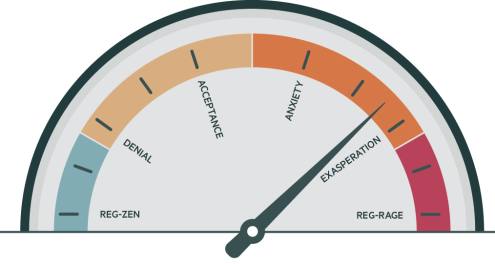The Financial Conduct Authority admitted it held contracts with Fujitsu worth around £630mn since 2007, some of which continued even after the High Court found that Fujitsu’s Horizon software was behind misreported losses at Post Office branches, in 2019.
The Treasury Select Committee, a group of MPs that scrutinises Treasury agencies, had requested information on its contracts with the IT company. It had asked whether Fujitsu’s role in Horizon was considered during the tendering process and whether organisations thought about ending the deals in light of the scandal.
The FCA told the committee it considered ending a contract with the company due to its “poor performance” and a “breach of an agreed service standard” in April 2021, but decided to retain its services. The conduct regulator says it still maintains six contracts worth a total of around £9mn, despite “poor performance” from Fujitsu, in data published by the TSC on February 10.
In a letter to the TSC, the FCA said: “Our main contract with Fujitsu expired in March 2022 and was in wind-down from March 2018, with services being exited in readiness to meet a completion target date of December 2021.”
It is understood that the FCA tried to sever ties with Fujitsu for years after inheriting what it saw as an inflexible legacy system from its predecessor, the Financial Services Authority. The regulator spent a considerable sum attempting to end relations with the firm, according to a well-informed source.
The Payments Systems Regulator told the committee it had also used the FCA’s Fujitsu-provided IT systems. The Bank of England confirmed it had one contract worth £417,000 from 2019 which expired in August 2020. HM Revenue and Customs held almost £3bn in contracts.
Highlighting concerns around the distribution of major public sector contracts, committee chair MP Harriett Baldwin said: “We have unearthed some information which, I believe, goes beyond what is known by the Cabinet Office. I hope this will aid transparency and scrutiny around the role of Fujitsu as a public sector supplier.”
An FCA spokesperson says: “We believe accountability is vital, and have hugely benefited from the regular and close scrutiny of parliamentary committees on our work.” The BoE stressed that their contract expired mid-2020, saying: “A commercial contract was in operation between 2019 and 2020 for a cloud-based threat monitoring and vulnerability software subscription via a reseller agreement with Fujitsu.”
Who watches the watchdogs?
The probe comes as a growing chorus of voices within parliament urge stronger oversight of financial services regulators, amid mounting concern about extra powers accrued by watchdogs following Brexit. A House of Lords report published just two days before the Treasury Committee’s revelations urged the creation of an Office for Regulatory Performance to hold all the UK’s 90 regulators to account.
“Regulators’ accountability to parliament is insufficient,” the report says, adding that parliamentary scrutiny is “reactive and piecemeal, rather than systematic and routine”.
“Over time, many regulators have accrued new duties, objectives and matters to ‘have regard to’, some of which conflict with each other,” says the report, authored by the Industry and Regulators Committee, which was appointed by the House of Lords in 2021 in part to keep the country’s regulators in check.
It was announced in January that parliament will also launch a separate new committee, chaired by former cabinet minister Lord Michael Forsyth, to dog financial regulators’ footsteps in response to concerns about regulators’ accountability to parliament.
The House of Commons Treasury Select Committee launched a dedicated subcommittee on financial regulation in 2022, so that it could hold regulators more accountable.
Can the FCA survive?
Regulation experts have speculated whether the FCA — soon to turn 11 — is now ripe for reform. Some point to its predecessor, the Financial Services Authority, which lasted for 12 years before it was restructured in 2013 after a perceived failure to regulate banks appropriately in the lead-up to the financial crisis. The FCA may only survive a similar length of time, according to some industry experts.
The Bank of England has also come under fire. The select committee criticised the BoE’s quantitative tightening programme, where the BoE sells government debt and other assets back into the market, as a “leap in the dark”.
The BoE needs to check its policy more thoroughly “with more public money at stake than was ever envisaged”, the committee said in a statement on February 7. “Decisions are being taken regarding vast amounts of taxpayers’ money without any regard to value for money,” it added.
This article first appeared in Banking Risk & Regulation, a service from the Financial Times.







